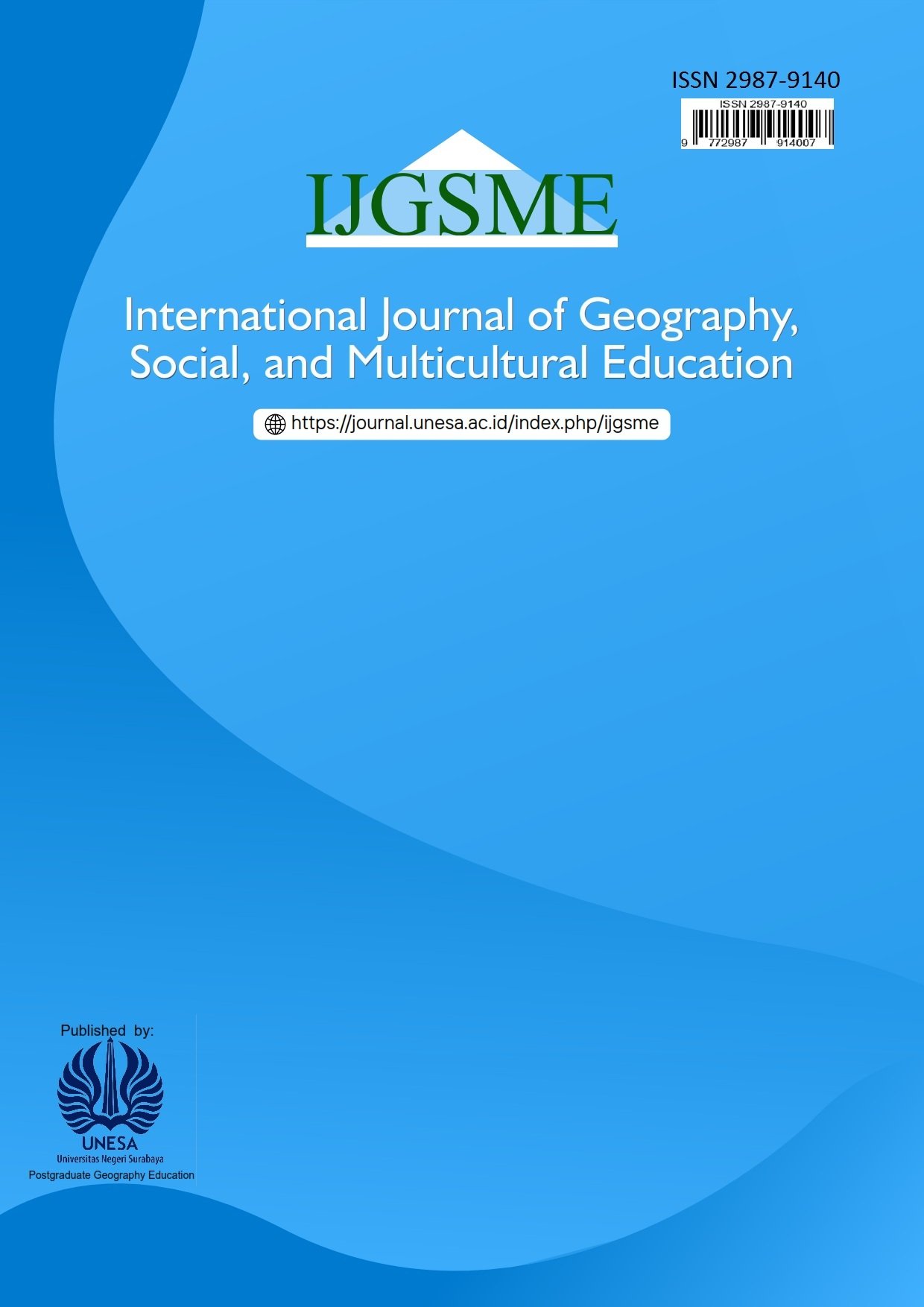The Effectiveness of Using Problem Based Learning Model to Improve Students Problem Solving Ability and Learning Motivation
DOI:
https://doi.org/10.26740/ijgsme.v3n1.p1-10Keywords:
Problem Based Learning, Learning MotivatonAbstract
Problem solving ability and motivation of students in a senior high school, SMA Negeri 3 lamongan are deemed to be suboptimal. Improving the problem solving ability and motivation of students can be done by applying the Problem Based Learning (PBL). The purpose of this research is to describe the improvement of problem solving ability and motivation of students to learn history after using the Problem Based Learning (PBL). The method used is the Embedded mixed method. The population of this study was all students of SMA Negeri 3 Lamongan grade X IPS in the Academic Year 202-2024 that consist of 12 classes with a randomized sample of 31 students. The research conducted produced some data; those are quantitative data (test results of problem solving abilitiy) and qualitative data (students’ motivation questionnaires observation results). The results of the analysis show: (1) improvement in students' problem solving ability with Problem Based Learning (PBL) is better than students with conventional learning, (2) Students motivation in learning mathematics with Problem Based Learning (PBL) is better than students with conventional learning, (3) There is a very strong correlation between students' motivation to learn history and their problem solving ability.
Downloads
Published
How to Cite
Issue
Section
License
Copyright (c) 2025 Mohammad Nafis Abdul Rouf, Timing Merawati, Abdul Azis Masyhuri, Nurul Hidayati

This work is licensed under a Creative Commons Attribution-ShareAlike 4.0 International License.
 Abstract views: 352
,
Abstract views: 352
, PDF Downloads: 38
PDF Downloads: 38








